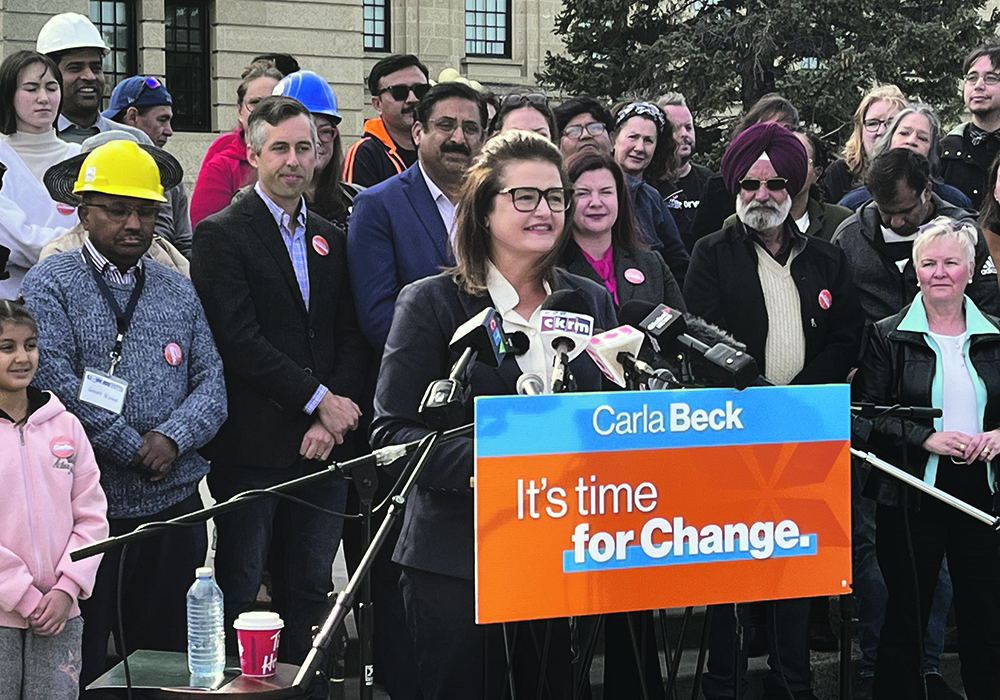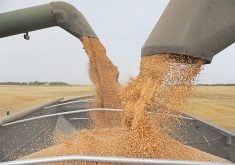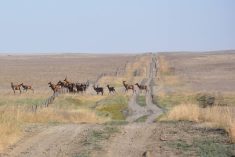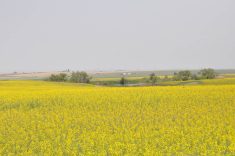The first woman elected to lead the Saskatchewan NDP says it’s time for a change when voters go to the polls Oct. 28
REGINA — Saskatchewan election campaigns are largely fought in the cities these days.
It’s been years since party leaders took buses around the province, hitting every nook and cranny in their bids for votes. Today, they’re more likely to be found travelling Highway 11 between Regina and Saskatoon with a few side trips to smaller centres.
Of the 61 constituencies, 30 are considered urban, 29 rural and two in the north. The urban breakdown is 14 in Saskatoon, 12 in Regina, and two each in Moose Jaw and Prince Albert.
Read Also

Canola oil transloading facility opens
DP World just opened its new canola oil transload facility at the Port of Vancouver. It can ship one million tonnes of the commodity per year.
Rural Saskatchewan has been firmly held by the Saskatchewan Party since it was elected in 2007. In the 2020 election, the NDP won just 13 urban seats.
But NDP leader Carla Beck, a farm girl from Lang who was first elected in Regina Lakeview in 2016, hopes to change that.
“The momentum, friends, is real. We are so, so close,” she told supporters at a campaign event in front of the Legislature last week.
“This race is tighter than any in memory, both in the cities and in rural ridings.”
Many observers expect the NDP to make gains in the cities following job action by teachers last year over contract negotiations. Health care staffing and services issues are also front and centre.
Beck and the NDP got out in front of the official election call, beginning to campaign in late August.
Key promises include suspending the 15-cents-a-litre gas tax for six months the day after taking office, pouring billions into education and health care and eliminating the planned Saskatchewan Marshal’s Service. Instead, Beck announced she would hire 100 RCMP members and 100 local police to fight crime and add money to the mental health and addictions budget to fight the root cause of that crime.
The Saskatchewan Association of Rural Municipalities has said rural crime must be addressed. It cited Statistics Canada information from 2021 stating the province had the highest crime severity index for rural offences.
There are varying opinions within the SARM membership about whether 70 new marshals, who are expected to assist RCMP, would help.
Last week, Beck said people across the province were ready for change. She said every vote matters and urged everyone to go to the polls.
Rural residents have told her they have poor access to health care, have had cuts at their schools and can’t afford their commutes to work.
People are being left behind, she said.
“I know we have more ground to make up in rural Saskatchewan. I understand that. Our message, our plan, we’ve created with all people in this province in mind, with the feedback of people in every area of this province,” she said.
Beck is a social worker who worked in hospitals and women’s shelters. Her first foray into politics was as a two-term member of the Regina public school board. She was elected leader of the NDP in 2022.
Married with three children, she is also a member of the Beck family inducted into the Saskatchewan Baseball Hall of Fame in 2019.
She said she wants to be a premier for all people of the province, no matter where they live.
Meanwhile, Regina-based Access Communications held televised debates on several issues last week.
There was some discussion about agriculture among candidates from the Sask. Party, NDP, Green Party and Progressive Conservatives. Issues included concern about large farms leading to the downfall of small communities, farmland ownership and climate change.
Agricultural Producers Association of Saskatchewan president Ian Boxall was on a post-debate panel and said he would have liked to hear how an elected provincial government would work better with the federal government to ensure infrastructure for agricultural exports.
He said the province has done good work on trade access, and that has to continue.
As well, young Saskatchewan residents and newcomers need to see agriculture and small towns as a place to work and live, he said.
A recorded question presented to the candidates from APAS vice-president Bill Prybylski asked what the parties would do to encourage the next generation of farmers and intergenerational transfer.
“It is getting to where it is almost unachievable,” Boxall said about farmland ownership, suggesting tax incentives might help.
“Did I hear enough? No. But I think with the right lobby we can get to where we need to be to ensure that the family farm stays within the family farm.”
He said irrigation projects must continue to help producers and the rural economy.


















